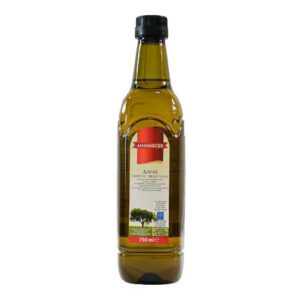
Top 10 Whisky Brands
Whisky, often called the “water of life,” has a rich history and continues to be a cornerstone of the global spirits industry. In 2023, the global whisky market reached a valuation of approximately $64 billion, with consumption exceeding 4.5 billion liters annually. Projections suggest a robust growth trajectory, with the market expected to reach $97 billion by 2030, growing at a CAGR of 6.3%. This expansion is fueled by rising demand for premium and craft whiskies, innovative flavor profiles, and increasing popularity in emerging markets.
Scotland remains the epicenter of whisky production, accounting for nearly 70% of global Scotch exports and contributing over £5.5 billion ($7 billion) to its economy annually. In the United States, bourbon and Tennessee whiskey generate a combined market value of $11 billion, while Japan has emerged as a global powerhouse, exporting over $1.5 billion worth of whisky yearly. India, the world’s largest whisky-consuming nation, accounts for over 1.5 billion liters of whisky consumption annually, driven by a growing middle class and a burgeoning interest in premium spirits.
The Asia-Pacific region has become the fastest-growing whisky market, with imports increasing by 40% over the last decade, fueled by rising disposable incomes and a shift toward Western lifestyles. Meanwhile, in established markets like North America and Europe, premiumization is driving growth, with super-premium and craft whiskies growing at a CAGR of 8%.
This article highlights the Top 10 Whisky Brands, their innovations, and how they navigate the evolving landscape of one of the most celebrated spirits in the world.

- Johnnie Walker (Diageo)
- Headquarters: Edinburgh, Scotland
- Why It Stands Out: A pioneer in Scotch whisky, Johnnie Walker is known for its diverse range of blends, from the iconic Red Label to the luxurious Blue Label.
- Key Innovations: Introduction of sustainable packaging and expansion into limited-edition, experimental blends.
- Jack Daniel’s (Brown-Forman)
- Headquarters: Lynchburg, Tennessee, USA
- Why It Stands Out: The best-selling American whiskey globally, Jack Daniel’s is synonymous with Tennessee whiskey, celebrated for its smooth, charcoal-mellowed flavor.
- Key Innovations: Launch of flavored whiskies like Honey and Apple to attract younger consumers.
- Jameson (Pernod Ricard)
- Headquarters: Cork, Ireland
- Why It Stands Out: Jameson is the world’s best-selling Irish whiskey, renowned for its triple-distilled smoothness and mixability.
- Key Innovations: Focus on ready-to-drink (RTD) offerings and experimental cask finishes.
- Maker’s Mark (Beam Suntory)
- Headquarters: Loretto, Kentucky, USA
- Why It Stands Out: Maker’s Mark stands out for its hand-dipped red wax seal and commitment to traditional bourbon craftsmanship.
- Key Innovations: Development of private selection programs, allowing consumers to personalize their bourbon.
- Glenfiddich (William Grant & Sons)
- Headquarters: Dufftown, Scotland
- Why It Stands Out: As the best-selling single malt Scotch whisky, Glenfiddich is a benchmark for quality and innovation in single malt production.
- Key Innovations: Introduction of experimental series such as IPA Cask Finish and Project XX.
- Suntory (Beam Suntory)
- Headquarters: Osaka, Japan
- Why It Stands Out: Suntory is a leader in Japanese whisky, offering internationally acclaimed products like Yamazaki and Hibiki that embody precision and artistry.
- Key Innovations: Expansion of limited-edition whiskies and investments in sustainable distillation practices.
- The Macallan (Edrington Group)
- Headquarters: Craigellachie, Scotland
- Why It Stands Out: Renowned for its sherry-cask maturation, The Macallan is synonymous with luxury and craftsmanship.
- Key Innovations: Adoption of blockchain technology for product authentication and limited-edition collectible releases.
- Jim Beam (Beam Suntory)
- Headquarters: Clermont, Kentucky, USA
- Why It Stands Out: One of the most recognizable bourbon brands, Jim Beam combines tradition with mass appeal.
- Key Innovations: Launch of high-proof small-batch bourbons and global expansion into emerging markets.
- Chivas Regal (Pernod Ricard)
- Headquarters: Keith, Scotland
- Why It Stands Out: Known for its rich and smooth blended Scotch whiskies, Chivas Regal has long been a favorite among premium whisky consumers.
- Key Innovations: Sustainable sourcing of barley and innovative marketing campaigns targeting younger audiences.
- Bulleit (Diageo)
- Headquarters: Louisville, Kentucky, USA
- Why It Stands Out: Bulleit is a rising star in the bourbon category, celebrated for its high-rye mash bill and bold flavor profile.
- Key Innovations: Focus on eco-friendly distillation methods and partnerships with artisanal bartenders.
Expanded Major Trends in the Whisky Industry
- Surge in Premium and Super-Premium Whiskies
The demand for premium and super-premium whiskies has skyrocketed, with this segment accounting for nearly 20% of global whisky sales. This trend is driven by consumers seeking higher quality and unique flavor profiles, often paired with luxurious packaging and artisanal production techniques.
- Expansion of Whisky Tourism
Whisky tourism has become a significant revenue driver, with distilleries in Scotland, Kentucky, and Ireland welcoming millions of visitors annually. For example, Scottish whisky tourism generated over £85 million ($110 million) in revenue in 2022, underscoring its importance in connecting consumers with heritage and craftsmanship.
- Rise of Cask Experimentation
Brands are increasingly using innovative cask finishes, such as rum, wine, sherry, and beer barrels, to develop distinctive flavor profiles. This trend appeals to adventurous consumers looking for unique experiences beyond traditional whisky.
- Growth of Whisky in Emerging Markets
Emerging markets in Asia-Pacific and Latin America are becoming key growth regions. India, for instance, consumes nearly 48% of the world’s whisky, and premium brands are making significant inroads into this massive market. Similarly, Japan’s whisky exports have grown by 25% year-over-year, fueled by international acclaim for its artisanal techniques.
- Sustainability in Whisky Production
Sustainability is now a priority for many whisky producers. Distilleries are investing in carbon-neutral facilities, renewable energy sources, and sustainable barley farming. For example, Glenfiddich recently introduced a biofuel initiative using waste products from whisky production.
- Ready-to-Drink (RTD) Whisky Cocktails
The RTD whisky cocktail market is expanding rapidly, with a projected CAGR of 7.5% through 2030. These pre-mixed options cater to younger, convenience-seeking consumers and are gaining popularity in urban markets.
- Integration of Digital Marketing and E-Commerce
E-commerce is reshaping whisky sales, with online platforms allowing producers to directly reach consumers. Digital marketing campaigns leveraging storytelling and virtual distillery tours are engaging younger audiences and boosting brand loyalty.

Expanded Main Challenges in the Whisky Industry
- Climate Change and Resource Constraints
Barley, peat, and water—key ingredients in whisky production—are increasingly affected by climate change. Erratic weather patterns, such as droughts and floods, are impacting barley yields, while rising temperatures threaten the delicate aging process in casks.
- Navigating Regulatory Hurdles
Trade regulations and tariffs present significant challenges, particularly for Scotch whisky producers reliant on exports. For example, the recent US-EU trade dispute temporarily imposed a 25% tariffon Scotch whisky, significantly affecting sales.
- Counterfeit and Fake Products
The rise of counterfeit whiskies, particularly in premium segments, poses a major threat to brand reputation and consumer trust. This issue is especially prevalent in emerging markets where regulatory oversight may be weaker.
- High Competition in the Craft Segment
The proliferation of craft distilleries has created intense competition, particularly in the United States. While this segment caters to niche markets, established brands must continually innovate to retain their dominance.
- Rising Production and Logistics Costs
Supply chain disruptions and rising costs for raw materials, transportation, and energy are squeezing profit margins. Smaller producers, in particular, are finding it difficult to absorb these costs compared to larger, well-capitalized companies.
- Evolving Consumer Preferences
The whisky industry must balance tradition with modernity as consumers demand more diverse and innovative flavor profiles. Brands risk alienating traditionalists if they stray too far from classic styles, while failing to innovate may result in losing younger audiences.
The Top 10 Whisky Brands demonstrate the perfect blend of heritage, innovation, and adaptability that defines the whisky industry. From Scotland’s legendary single malts to America’s bold bourbons and Japan’s refined expressions, these brands continue to set global benchmarks for excellence.
Platforms like uFoodin offer whisky producers an unparalleled opportunity to connect with global distributors, premium retailers, and craft distilleries. Beyond fostering trade, uFoodin facilitates collaborations on sustainability initiatives, innovative aging techniques, and digital engagement strategies, helping brands navigate the industry’s challenges and capitalize on emerging trends.
For smaller producers, uFoodin provides a gateway to expand into premium and niche markets, enabling them to showcase their unique offerings and build relationships with buyers who value craftsmanship and authenticity. Meanwhile, larger players can use the platform to optimize supply chains and explore partnerships that align with evolving consumer demands.
As whisky continues to evolve, its enduring legacy will be shaped by the ability of producers to embrace sustainability, harness innovation, and connect with a diverse and global audience. By adapting to these challenges and trends, the whisky industry remains poised to thrive as a symbol of tradition, creativity, and excellence.
uFoodin Editorial Team
Bibliography
- Statista: Whisky Market Trends and Projections
- International Wine and Spirits Record (IWSR): Global Whisky Insights
- Fortune Business Insights: Challenges and Innovations in the Whisky Industry
- Company Websites: Johnnie Walker, Jack Daniel’s, Jameson, and others
























